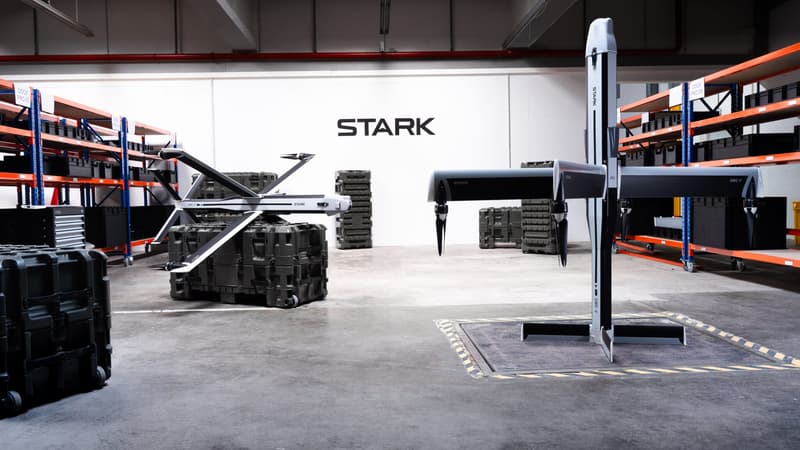The system doesn’t seem to be ready yet. According to information collected by the Financial timesThe hidden munitions of a new German company created 15 months ago would not have hit all their targets during test campaigns carried out with the German and British armed forces. The Virtus drones of the young Stark company apparently did not give satisfactory results, missing their target four times during tests carried out in Kenya with the British Army and near Munster in Germany with the Bundeswehr.
The Financial Times reports that one of the tests carried out in Germany caused the drone to lose control, before an audience made up of military and industrial representatives, while in Kenya, the battery caught fire on impact and neither of the two shots were successful.
The features shown by Stark present a speed of 120 to 250 km/h, a payload of up to 5 kg and an autonomy of 60 minutes. Against the Virtus, Helsing’s HX-2 would have performed much better, hitting its five targets in Kenya and 17 during testing in Germany.
A German contract worth 300 million euros
Supported by, among others, Palantir (and Paypal) founder and tech billionaire Peter Thiel, Stark also benefited from help from Sequoia Capital and the NATO Innovation Fund. The startup already has a team in Ukraine to test and develop drones and plans to soon open a production facility in Swindon, UK.
According to the Financial Times, Germany is about to award a €300 million contract to Stark, as well as Helsing and Rheinmetall, for the production of kamikaze drones. The agreement, which still must be approved by Parliament, would aim to provide a new German brigade stationed in Lithuania with up to 12,000 drones, in order to reinforce NATO defenses on the eastern flank.
While NATO countries have validated (with the exception of Spain) the goal of dedicating 3.5% of their GDP to defense spending, and the fight against drones will require a significant increase in industrial production, the drone market is seeing the arrival of many new entrants, seeking to take advantage of the opportunities – and the corresponding budgets.
Source: BFM TV


